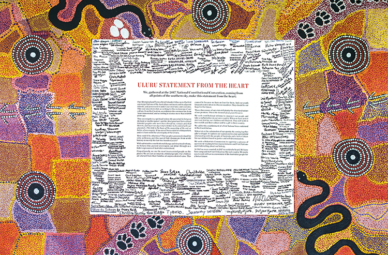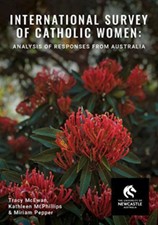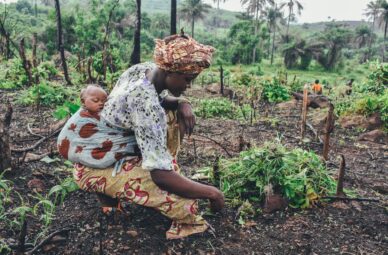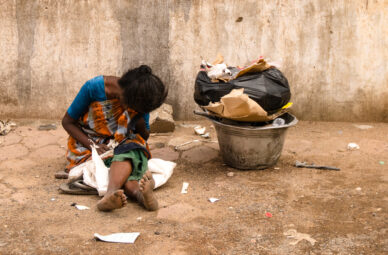
A Personal View of Six Discernment Papers for the Plenary Council
June 23, 2020We are all familiar with Karl Rahner’s statement, “The Christian of the future will be a mystic or will not exist at all.” The more I advance on the Plenary Council journey, the more it seems to me that the Church of the future will be synodal or will not exist at all. This makes me wonder about the connections between mysticism and synodality. I’m sure there’s a theological essay in there but I have other fish to fry right now!
Can we make some general statements about the 6 Discernment Papers to illuminate the way forward? I believe we can.
If I were to pick the one thing that stands out as being of most importance, it would be the key analysis in Humble, Healing and Merciful. Let me quote some of it:
God is asking the Church in Australia today to start afresh from the place of humility…The Church in Australia is in need of healing. It bears a great wound and must not act as if it were not wounded…Overlooking and blocking out trauma, however, does not result in healing but leads to more pain, paralysis and, ultimately, death.
As long as the Church takes a “business as usual” approach, we will continue to experience “night” under the shadow of the sexual abuse scandal and other challenges. No matter how much energy we invest…in an attempt to draw people back to the pews, we will struggle to flourish.
Not surprisingly, the first recommendation in this paper is to DO sorry. It’s a recommendation found in most of the papers, in one form or another. It’s recognised as a foundational step to renewal.
The concepts of synodality and co-responsibility recur frequently. “In a synodal Church there is an openness to the Holy Spirit in a genuine process of conversion by both a humble leadership and an actively engaged community.” (Inclusive, Participatory and Synodal) This is very much the vision underpinning much of what is written in these papers, which face the challenges honestly but hopefully. Unfortunately, I don’t see much of this hope in the wider Catholic community, so there is much work to be done between now and the first session of the Plenary, if we are serious about changing a deeply entrenched culture of clericalism.
There is no substitute for reading the papers themselves and I hope you do so. I was heartened by some of the recurring priorities and proposals, especially seeing the very first proposal and one of the last (in the order they appear on the website) call for Pope Francis’ encyclical, Laudato Si’, to be the inspiration for an integral ecology approach in this country.
Of particular interest and relevance at this time is the recurrent call for the embedding of Indigenous knowledge and culture in our Church, and the forging of deeper links with our First Nations Peoples. Several times Pope St John Paul II’s address to them in 1986 is quoted:
You are part of Australia and Australia is part of you. And the Church herself in Australia will not be fully the Church that Jesus wants her to be until you have made your contribution to her life and until that contribution has been joyfully received by others.
It will come as no surprise that there were many questions and proposals around the participation of women, issues of governance and ministry, ongoing lifelong formation of bishops, clergy and laity at all levels, and a call for communal discernment to become a more deeply embedded process in our activities. It was also interesting to see how often a proposal was made for a national Catholic body to be created to oversee and co-ordinate various functions, in recognition of the fact that it is not always effective or desirable to have the dioceses all doing their own thing.
There was much in these papers to delight the reader interested in a life-giving culture of renewal. From a personal and parochial perspective, I was particularly impressed with the proposals made by the Prayerful and Eucharistic Writing Group, and especially their calls for “a collaborative model of ordained and lay sacramental ministry” and “formal approval and encouragement for suitably qualified lay women and men to break open the Word within the community.”
I don’t wear rose-coloured glasses. I am aware of the deep divisions in the Catholic Church in Australia, the resistance of some to the Plenary Council and the non-engagement of many others. However, that we have come this far in our journey of communal discernment is a great achievement, and we must build upon it.
We need forums for ongoing dialogue and discernment. It is clear that not all parishes or dioceses are going to provide these, and indeed, why should we expect that? If we are going to move from a culture of clericalism to a culture of synodality and co-responsibility, now is a good time to start. We at the grassroots must take the initiative. Various lay groups are already starting to do so. However, we need more than to meet in our silos and echo chambers. We need to engage with those who disagree with us or who bring a different faith perspective. It’s uncomfortable and it’s challenging and we don’t do it well.
Discernment takes us to the heart of things, to the things that really matter. Jesus tells us to seek first the kingdom and all the rest will follow. For St Paul unity in Christ was everything. Jesus and the gospel must be our compass. Can we seek out our delegates to the Plenary Council and start processes of respectful dialogue and prayerful discernment with them and others, so that together we can begin to discern where the Spirit is leading us? And in the doing, can we learn to be united in our differences, knowing that in Christ we are all one?
Patricia Gemmell
June 2020
Patricia has a Masters in Theology, is a member of the Australian Grail National Leadership Team and has been a parishioner of St Leonard's Naremburn for 34 years.










